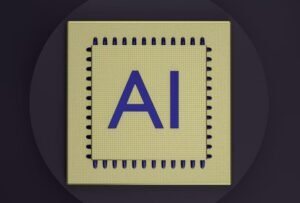Creator God in Hinduism
Hinduism, one of the oldest religious traditions in the world, holds a diverse set of beliefs and practices. Central to Hinduism is the concept of a creator god, who is responsible for the creation, sustenance, and destruction of the universe. Understanding the role of the creator god is essential to comprehending Hindu theology and philosophy.
Key Takeaways:
- The creator god in Hinduism is known as Brahma, who is responsible for the creation of the universe.
- Brahma is part of the Hindu Trinity, which also includes Vishnu and Shiva.
- According to Hindu scriptures, Brahma is depicted with four heads, representing the four Vedas.
Role of the Creator God
Brahma is considered the creator god in Hinduism. According to Hindu scriptures, Brahma is believed to have created the universe, along with all living beings and the laws that govern existence. While Brahma is responsible for the initial creation, it is Vishnu and Shiva who sustain and destroy the universe, respectively. *Brahma plays a crucial role in the cyclic process of creation, preservation, and dissolution that is central to Hindu cosmology.*
Brahma in Hindu Trinity
In Hinduism, the concept of the divine trinity comprises three major deities – Brahma, Vishnu, and Shiva. Brahma is the creator, Vishnu is the preserver, and Shiva is the destroyer. This trinity represents the cyclical nature of existence and the interdependence of creation, preservation, and destruction. *Each deity has unique attributes and is worshiped by different sects within Hinduism.*
Symbolism and Depiction of Brahma
In Hindu iconography, Brahma is often depicted with four faces, each facing a different direction. This representation symbolizes the four Vedas – sacred texts that are the foundation of Hindu scripture and knowledge. *The four heads of Brahma also represent his vast wisdom and ability to comprehend the complexities of the universe.*
| Deity | Role |
|---|---|
| Brahma | Creator |
| Vishnu | Preserver |
| Shiva | Destroyer |
Representation of Brahma
Brahma is often depicted carrying a rosary, a book symbolizing knowledge, and a water pot representing the nourishment of life. *His four heads and multiple arms symbolize his omnipresence and ability to perform several tasks simultaneously.* Brahma’s consort, Saraswati, is the goddess of learning and the arts. She is often depicted playing a musical instrument and holding scriptures.
| Symbol | Meaning |
|---|---|
| Rosary | Devotion and prayer |
| Book | Knowledge and wisdom |
| Water Pot | Nourishment of life |
Worship and Devotion
While Brahma is recognized as the creator god in Hinduism, worship dedicated solely to him is relatively rare. This is attributed to his limited popularity and a greater emphasis on worshiping other deities like Vishnu, Shiva, and various manifestations of the goddess Devi. Brahma is often included in prayers and ceremonies that invoke the powers of the entire divine pantheon. *His role as the creator of the universe is acknowledged, but his worship is not as prominent as that of other major deities in Hinduism.*
| Deity | Popular Worship |
|---|---|
| Brahma | Less prominent |
| Vishnu | Highly worshipped |
| Shiva | Highly worshipped |
| Devi | Varies by region |
In conclusion, the creator god in Hinduism, Brahma, plays a vital role in the Hindu Trinity, representing the cycle of creation, preservation, and destruction. Brahma’s symbolism and depiction reflect his wisdom and knowledge, while his worship is not as prevalent as that of other major deities. Understanding the concept of Brahma is crucial to grasp the foundational beliefs and practices of Hinduism.
Common Misconceptions
Misconception 1: Creator God in Hinduism is similar to the Christian concept of God
One of the common misconceptions about the Creator God in Hinduism is that it is similar to the Christian concept of God. However, in Hinduism, the concept of God is more diverse and complex. Here are three relevant points to consider:
- Hinduism recognizes multiple deities and each has its own significance and role.
- Hinduism emphasizes the idea of a personalized and accessible God that can take different forms.
- Hinduism believes in the cycle of creation, preservation, and destruction, with the Creator God as part of this cycle.
Misconception 2: Hinduism worships idols
Another misconception is that Hindus worship idols. While it is true that Hindu temples have statues and images of various deities, idols are not seen as mere physical representations. Here are three relevant points to consider:
- Idols are considered tools for focusing one’s devotion and as reminders of the divine presence.
- Hinduism teaches that the divine can manifest itself in multiple ways, including idols.
- Worship is directed towards the divine essence that the idol represents, rather than the physical object itself.
Misconception 3: Creator God in Hinduism is always male
One misconception is that the Creator God in Hinduism is always portrayed as male. However, Hinduism recognizes both masculine and feminine aspects of the divine. Here are three relevant points to consider:
- The major Hindu deities, including the Creator God, can be depicted as both male and female.
- The divine feminine energy, often represented as goddesses, is equally respected and worshipped in Hinduism.
- Hindu texts contain multiple stories and legends where the creative power of the universe is specifically attributed to the female aspect.
Misconception 4: Creator God in Hinduism creates the world out of nothing
It is commonly misunderstood that the Creator God in Hinduism creates the world out of nothing. However, Hinduism emphasizes a cyclical view of creation rather than a one-time creation event. Here are three relevant points to consider:
- Hinduism believes in cycles of creation, preservation, and destruction, rather than a singular act of creation.
- The Creator God in Hinduism is seen as the source of cosmic energy and the facilitator of the ongoing cycle.
- The universe is considered to be constantly in a state of flux and transformation, rather than being created once and remaining static.
Misconception 5: Hinduism is a polytheistic religion with no concept of a single Creator God
Another misconception is that Hinduism is a polytheistic religion with no concept of a single Creator God. However, Hinduism encompasses a wide range of beliefs and practices, including monotheistic aspects. Here are three relevant points to consider:
- While Hinduism recognizes multiple deities, it also acknowledges the existence of a supreme power or a single ultimate reality.
- The concept of Brahman, an all-encompassing divine essence, represents the idea of a single Creator God in Hinduism.
- Different deities are considered manifestations or aspects of this ultimate reality, with the choice of worship varying among individuals.
The Various Forms of the Creator God in Hinduism
In Hinduism, the concept of the Creator God takes various forms, each representing different aspects and qualities. These deities are worshipped by millions of Hindus around the world. Below are ten tables highlighting the various forms and characteristics of the Creator God in Hinduism:
Deities Associated with Creator God
| Deity | Symbolism | Role |
|---|---|---|
| Brahma | Four heads and four arms | Supreme creator of the universe |
| Vishnu | Discus and conch shell | Preserver of the universe |
| Shiva | Trident and serpent | Destroyer and transformer |
Five Primary Actions of the Creator God
| Action | Description |
|---|---|
| Creation | Formation of the universe and all living beings |
| Preservation | Maintenance and sustenance of the universe |
| Destruction | Transformation and removal of old or unnecessary elements |
| Concealment | Veiling of divine power to maintain balance in the universe |
| Revelation | Unveiling of divine knowledge and wisdom |
Avatars of the Creator God
| Avatar | Description |
|---|---|
| Rama | Seventh avatar, prince who restored righteousness |
| Krishna | Eighth avatar, divine teacher in the epic Mahabharata |
| Buddha | Ninth avatar, teacher of non-violence and compassion |
Goddesses Associated with the Creator God
| Goddess | Symbolism | Role |
|---|---|---|
| Saraswati | Veena (musical instrument) | Goddess of knowledge and arts |
| Lakshmi | Lotus flower and gold coins | Goddess of wealth and prosperity |
| Parvati | Third eye and lion | Divine consort of Shiva, representing feminine power |
Scriptures Explaining the Creator God
| Scripture | Description |
|---|---|
| Vedas | Earliest and most sacred texts of Hinduism |
| Upanishads | Philosophical treatises exploring the nature of ultimate reality |
| Puranas | Mythological texts containing stories of gods and goddesses |
Three Modes of Existence of the Creator God
| Mode of Existence | Description |
|---|---|
| Brahman | Formless and infinite absolute reality |
| Paramatman | The supreme soul residing within all living beings |
| Saguna Brahman | Manifestation of Brahman with qualities and attributes |
Cosmic Elements Associated with the Creator God
| Element | Representation |
|---|---|
| Air | Vayu, the life breath of all beings |
| Fire | Agni, the purifying and transformative energy |
| Water | Varuna, the deity ruling over the cosmic waters |
| Earth | Prithvi, the nurturing element and mother goddess |
Creation of the Universe
| Cosmic Element | Description |
|---|---|
| Sound (Shabda) | Primordial vibration giving rise to the universe |
| Energy (Shakti) | Dynamic force behind creation and transformation |
| Consciousness (Chit) | Awareness and intelligence permeating creation |
| Matter (Mula Prakriti) | Subtle and gross elements forming the physical world |
Worship and Devotion
| Devotional Practice | Description |
|---|---|
| Puja | Act of showing reverence through prayer, offerings, and rituals |
| Bhakti | Devotion and love for the Creator God |
| Japa | Repetition of the divine name or mantra |
Hinduism embraces a multifaceted understanding of the Creator God, integrating various divine forms and attributes. The tables above illuminate the diverse aspects of this concept within Hindu mythology, philosophy, and practice. From the deities and their associated roles to the scriptures and modes of existence, each table offers a glimpse into the intricate nature of the Creator God in Hinduism.
Through devotion, worship, and reflection upon these divine qualities, Hindus seek to establish a personal connection with the Creator God, embracing the supreme consciousness that underlies all existence. The depth and richness of this understanding contribute to the vast spiritual tapestry of Hinduism, fostering a sense of awe, wonder, and reverence toward the divine.



